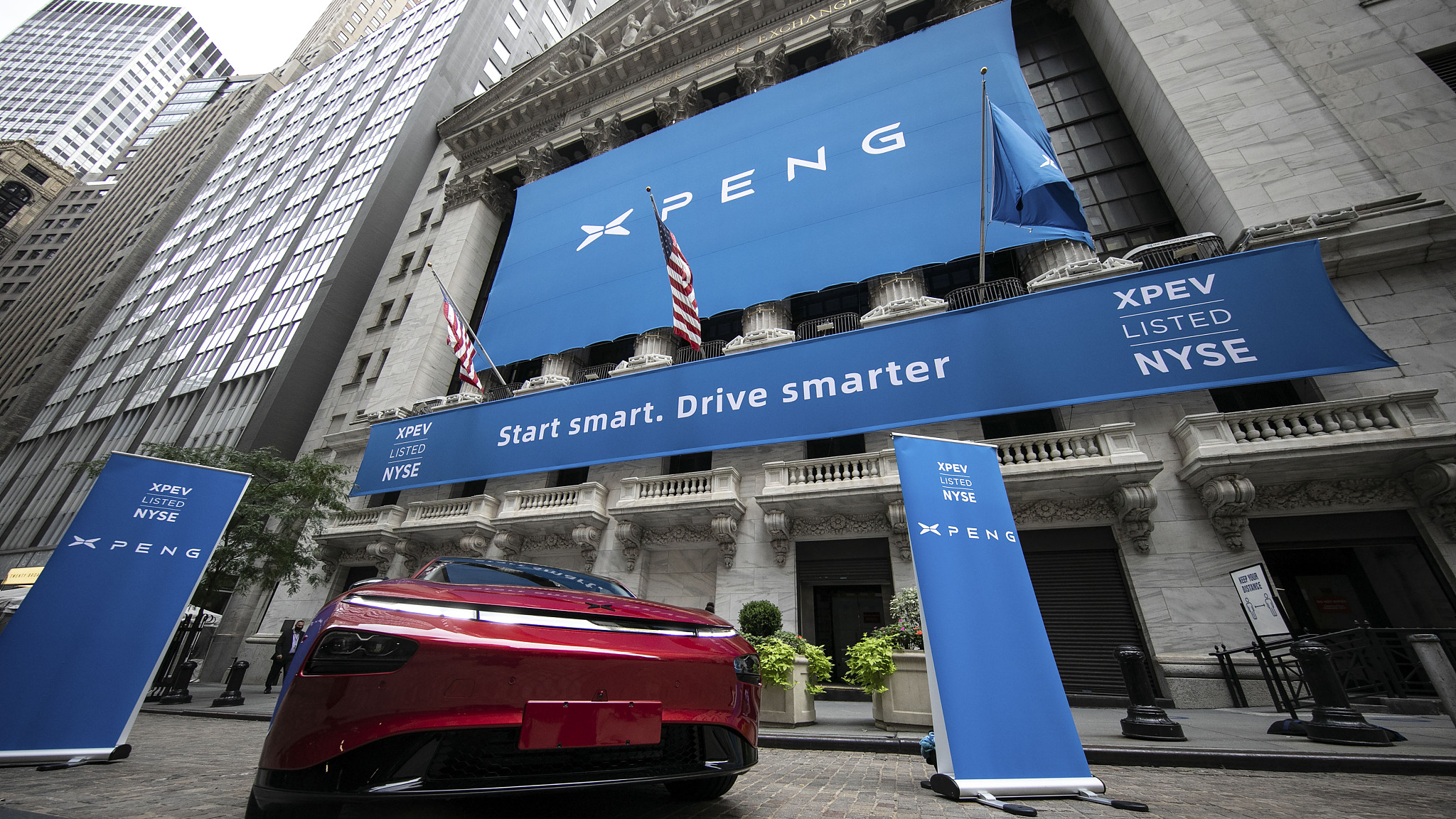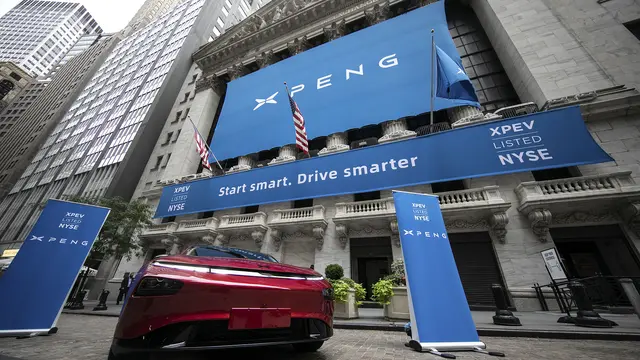
The Xpeng P7 electric vehicle is displayed outside the New York Stock Exchange in New York, U.S., August 27, 2020. /VCG
Editor's note: Hannan Hussain is a foreign affairs commentator and author. He is a Fulbright recipient at the University of Maryland, the U.S., and a former assistant researcher at Islamabad Policy Research Institute. The article reflects the author's opinions and not necessarily the views of CGTN.
When U.S. financial regulators threatened to delist Chinese companies from the New York Stock Exchange by force, outlets including Bloomberg and The Wall Street Journal built on a narrative of struggling stocks, framing the order in the interests of U.S. equity markets.
That fantasy is worth recalling now that Chinese companies raise a record$11 billion on the same U.S. equity markets at record pace, signaling a surge in funds that no amount of coordinated campaigning could tether.
Datareportedby The Financial Times this week puts follow-on share sales, initial public offerings, and issuance of convertible bonds at the center of Chinese companies' early-year listings boom.
These triggers matter. A rise in follow-on share sales, for instance, represents a sense of stable market exposure back home. Equities continue to maintain a delicate balance with sovereign and credit bonds, leaving U.S.-listed Chinese companies better positioned to court investor confidence, and spell the merits of an economic boom now stretching through April. Look to the Hong Kong exchange, which posted its highest quarterly profit ever. More tellingly, this included huge public offerings by Chinese technology groups, propelled in part by Chinese trading companies in the U.S. that complimented big share-sales and their associated flows this year.

A logo of the Nasdaq Stock Market seen in Midtown Manhattan. /VCG
Contrary to political rhetoric, investors in the U.S. bank on such certainty. One explanation is the delayed arrival of a post-pandemic economic turnaround, which has compressed U.S. stock market resilience to overnight occurrences, riddled with moderate upticks and select Wall Street valuations.
It is true, the U.S. economy expanded by 6.4 percent in the first quarter, giving impetus to a more consumer-focused recovery this year. But whether these broad economic trends translate into concrete gains for a see-sawing stock market is a different story. The U.S. Federal Reserve Bank Chairman Jerome Powell points to textbook economics and suggests that the American economy needs "substantial further progress" to make both nodes – growth recovery and investor confidence in lagging markets – align. The message is thus understood: investors must pin their hopes long-term.
U.S.-listed Chinese companies turn that equation on its head. For instance, their record valuations on Nasdaq and the New York Stock Exchange proved that a key trading index can still gain significant optimism if markets put a high value on the listed companies' future profits. That was the case when a known Nasdaq metric for U.S.-listed Chinese companies saw its trading rocket. Moreover, American financial markets are also in advantage: Chinese companies' "sky-high valuations" on Wall Street become an attractive reference point for gaining investor traction. That trend could very well carry into the year with dozens of more Chinese companies now slated to go public in the U.S., adding promise to a high investor-value performance streak.
Factoring realities, the Biden administration should also interpret these drastic leaps on U.S. equity markets as an incentive to rework inclusivity, level-playing dynamics, and equal opportunity listing for all companies. Targeted orders to hold select foreign-based companies "accountable" demonstrate an unfair distribution of regulatory power, and risks broad-based meddling in overwhelmingly market-based arrangements. Especially when it is U.S. investor confidence that supported a 440 percent increase in funds for Chinese listed companies so far this year – the same cluster of investors that regulators vow to protect.
Interestingly, on technology stocks, there is little doubt that their growth has created positive inroads in U.S. equity markets since last year, and prospects are higher as the economy picks up. However, sustaining that trend in 2021 means broadening the field of tech-stock listings beyond just U.S.-based companies.
Acknowledging what is a bold first impression, their long-term performance must be observed as part of an international grouping of tech stocks in the U.S., which many experts view as dependable sources of earnings.
Vera Yang, chief China representative for the New York Stock Exchange, recently suggested that investors are filtering their support for those incoming Chinese companies that have the potential to sustain high valuations.
That is an outcome that stands accomplished by more than 20 Chinese groups in the opening months of the year – a wake-up call to insulate politics from long-term free-market exposure.
(If you want to contribute and have specific expertise, please contact us at
.)
 简体中文
简体中文

